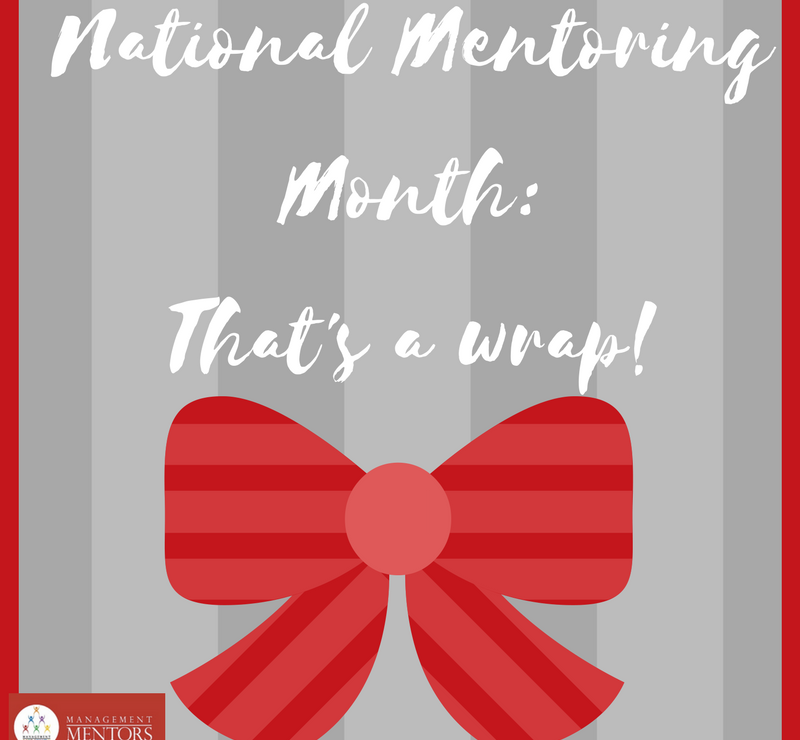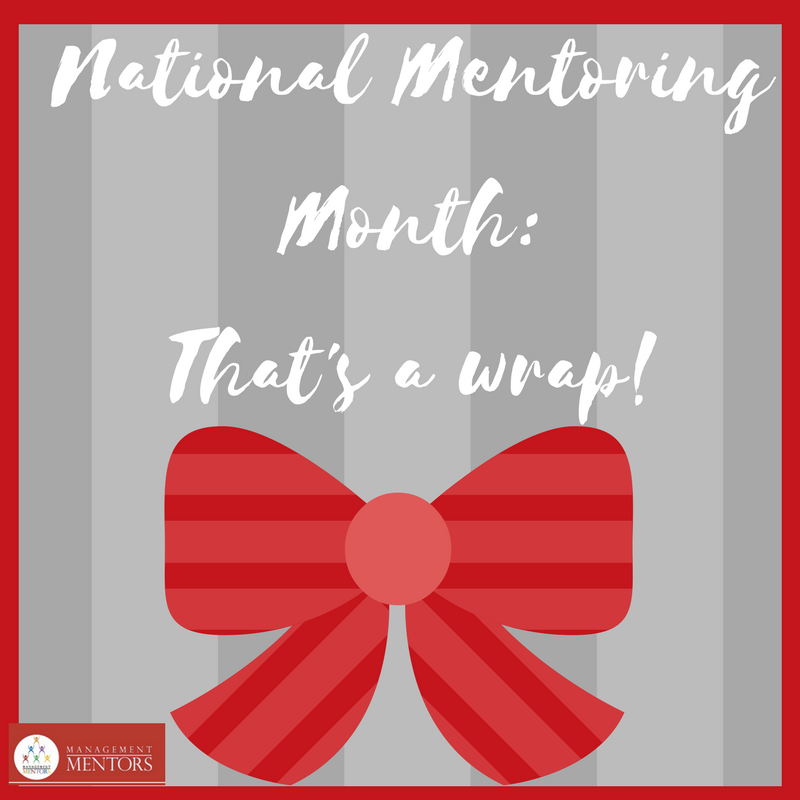
 Editor’s note: January is National Mentoring Month. All month long, we celebrated by sharing our own personal stories with mentoring. Read the essays from our team: Rene Petrin, Robyn Bradley, Joanne Wills, and Ranae Mogensen. To wrap up, we thought we’d provide some tips for mentors and mentorees—tips based on the stories our team members shared.
Editor’s note: January is National Mentoring Month. All month long, we celebrated by sharing our own personal stories with mentoring. Read the essays from our team: Rene Petrin, Robyn Bradley, Joanne Wills, and Ranae Mogensen. To wrap up, we thought we’d provide some tips for mentors and mentorees—tips based on the stories our team members shared.
- Be open to mentoring—and being mentored. At Management Mentors, we typically talk about formal mentoring, particularly the kind that takes places in companies. But mentoring can happen anywhere. Be open to mentoring others and to being mentored yourself, regardless of the setting.
- Informal mentoring often starts as a casual friendship. Often, two people will come together as friends first, but soon realize another relationship awaits—that of mentor and mentoree. The friendship doesn’t need to end; in fact, mentoring will likely enrich the existing friendship.
- Mentoring isn’t forever. Most mentorships end at some point. In a formal mentoring relationship, both parties are aware of a firm end date, which typically occurs after nine to 12 months. With informal mentoring, the ending can be hazier. It often happens naturally—someone moves or changes jobs, people drift apart, or the relationship slips back into friendship only. This is OK. This is normal. This is healthy.
The good news? There will likely be future opportunities to mentor and be mentored, if you remain open to the idea (see #1 above).
- Sometimes you don’t realize you were involved in mentoring until AFTER it’s over. Mentoring is a natural human behavior: we mentor, and we seek mentors (even if we don’t use that terminology).
As a child, you likely had mentors—a parent, a teacher, a coach—even though you probably didn’t encounter the term “mentoring” until much later in life. Like gravity, mentoring just is. It exists, and that’s a good thing.
That said, even though mentoring is innate to most humans, you can still improve your mentoring skills. Think of mentoring like a muscle: you’re automatically born with the mentoring muscle, but you can strengthen it and learn how to use it more efficiently. We have a great, low-cost e-learning course that anyone involved in mentoring (formal or informal) should check out.
- Mentoring is enjoyable! We need to stress this more, especially to those who are planning mentoring in companies. Mentoring should never be approached as a chore, as a punishment, as “one more thing” to do to please the boss.
Mentoring, when it’s done right, should be enjoyable. Sure, there will be moments when you might not feel like meeting or you’re anxious about having a tough—but necessary—conversation. That’s called life and being human. But the rest of the time, it should be fun. If it’s not, then you should shift back to a friendship (if you’re in an informal mentoring relationship) or reach out to your mentoring program manager (in a formal setting).
Here’s to your mentoring success!